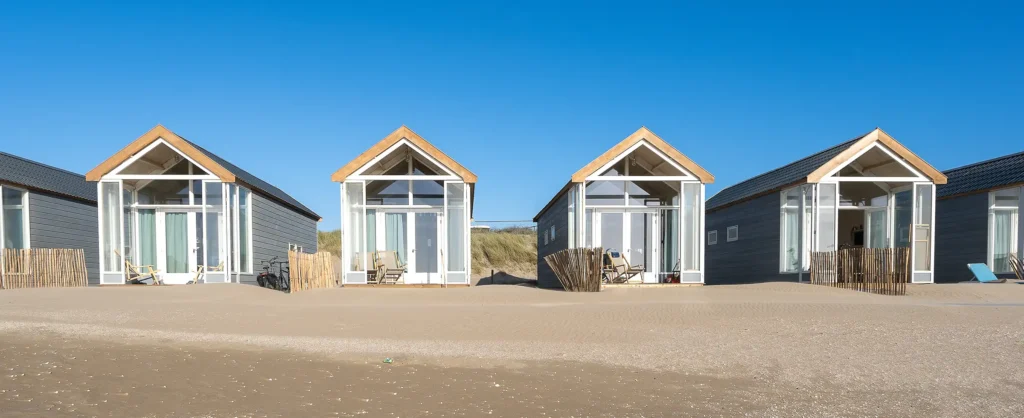Just a decade ago, ethical investment could be considered such a niche approach to building a portfolio that some investors would be forgiven for not being familiar with it. While once defined as merely seeking out investment opportunities that align with one’s personal values, the advent of sustainable assets, social impact investing and Environmental, Social and Governance (ESG) strategy have pushed the ethical investment umbrella into a more central and profitable role within the global investment market.
Nowadays, major firms like BlackRock and PwC prioritise ESG and social impact in all their corporate and strategic decision-making. Even individual investors are seeing short- and long-term benefits from building ‘future-proof’ portfolios that put sustainability and ethics at their core.
Could a focus on ethical investments help you build a portfolio that makes a social impact? And is it possible for the average investor to turn a profit by banking on sustainable investments? The real asset investment experts at Concept Capital Group are here to explain how an ethical investment could be exactly what a future-proof portfolio needs.
The Evolution and Growth of Ethical Investments
Ethical investment is on a significant growth trajectory attributable to recent social and economic drivers.
Entering 2020, the value of sustainable investment in major financial markets reached a peak of $35.3 trillion, accounting for 36% of all professionally managed assets in the US, Europe, Canada, Japan and Australasia. In the past two years, the market experienced an additional growth of 15%, with 84% of asset owners in a global survey commenting that they were either implementing or evaluating the potential of sustainable investment strategies.
The rise of ESG and socially impactful investment strategies coincides with commitments from several global governments to tackle climate change through business and infrastructure. In the UK, a nationwide commitment to reaching net-zero carbon emissions by 2050 will place much of the onus for this change on the private sector. In a report from the Office for Budget Responsibility (OBS), the public sector was forecast to provide only £344 billion of the £1.4 trillion funding necessary to support a more sustainable British economy.
Likewise, PwC predicts that global asset managers will increase their ESG-related assets under management to $33.9 trillion by 2026 from an estimated $18.4 trillion in 2021, growing at a much faster rate than traditional assets under management. 78% of the investors responding to the firm’s ESG survey even showed a willingness to pay higher fees for ESG funds and assets. The COVID-19 pandemic further cemented the importance of ESG to a more inclusive and sustainable economy, as a 2021 EY survey evidenced an increasing number of investors carrying out structured ESG performance reviews when building their portfolios in its financial wake.
In 2024, ethical investment is at an inflection point where private investors are seeing more opportunities to support a sustainable future while building a resilient portfolio.
What Ethical Investment Can Bring to Your Portfolio
A CBRE report on the economic value of sustainability concluded that the past decade or so has seen several examples of sustainable real assets demonstrating superior economic value compared to less sustainable assets. Highlights from the report include:
- Certified sustainable buildings commanding substantially higher rent, occupancy and sale prices
- Low Energy Performance Certificate (EPC) rated buildings showing a reduced investment performance of about 18.2% in the UK
- Sustainable buildings maintained more value during economic downturns, with overall property values increasing by 16-25% as a result of green property premiums
- General reduction in operating costs as a result of reduced regulatory risk and higher operational efficiency
Among the top three motivations for individual and institutional investors entering the ethical investment and ESG space, greater returns took the lead with 44% of respondents to a Bloomberg survey indicating that this was their primary reason for considering ESG assets. Moreover, 60% of institutional investors responding to the previously referenced PwC survey reported that ESG investing had already resulted in higher performance yields compared to non-ESG equivalents.
Ethical investment is not a moral obligation or a means of giving back: it is a legitimate investment strategy with the potential to be just as financially rewarded as traditional investments if not more. By future-proofing portfolios with sustainable assets, modern investors could seize a unique opportunity to enhance returns, mitigate risk and preserve value in a rapidly developing ethical market.
Social Housing: The Ideal Sustainable Asset?
While there is an increasing range of sustainable assets for ethical investors to seek out in 2024, the relevance of social housing to major socioeconomic developments could make it the ideal ESG-friendly option for anyone building a more conscientious portfolio.
According to a report by the UK’s leading social impact investor, Big Society Capital, there is a growing appetite among investors for ethical investment driven by diversification, long-term demand characteristics and increased government-backing.
Social housing uniquely matches with this criteria in its alternative real asset approach to traditional buy-to-let property investment, a current inability to meet excessive demand among current market stakeholders and the recently renewed focus on housebuilding prompted by Labour’s general election victory.
At Concept Capital Group, we offer a unique and alternative social housing investment opportunity that uses private backing to support vulnerable individuals in need of fast, high-quality long-term housing. Our modular homes are a sustainable real asset well-suited to investors who want to enter an otherwise competitive market in an ethical, accessible and diversified manner.
For more information on our ethical investment opportunities, book a call with our team today.













